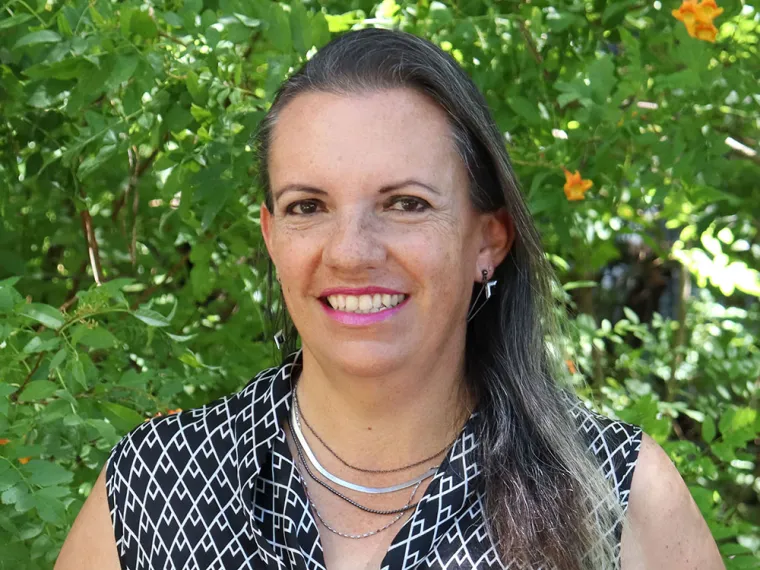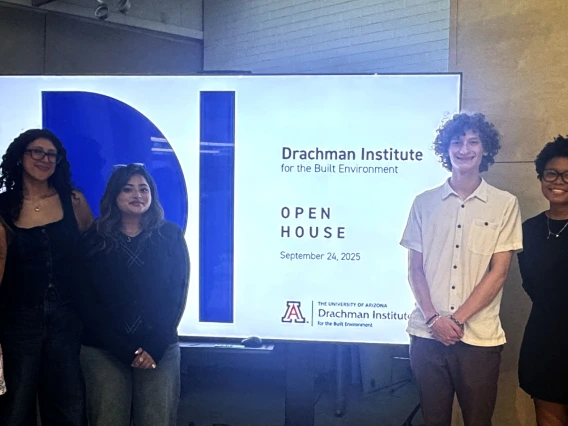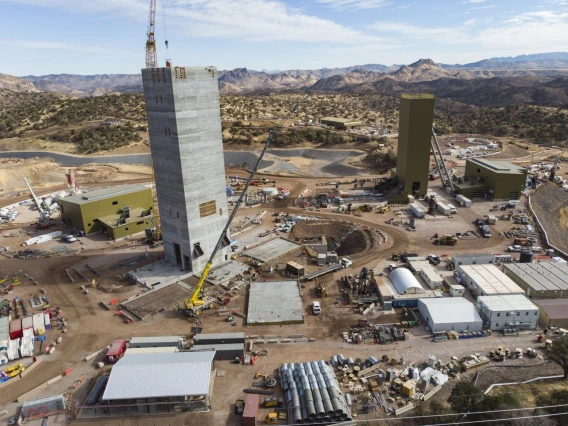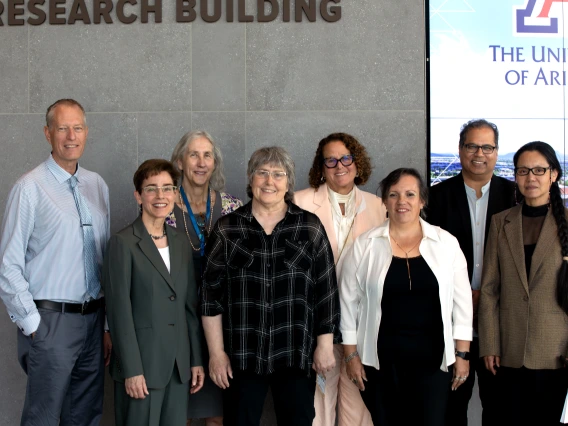Sandra Bernal Cordova
Programs
-
Architecture
-
Landscape Architecture
-
Master of Science in Architecture
-
Real Estate Development
-
Sustainable Built Environments
-
Urban Planning

Documents
Areas of Expertise
-
Healthy Building
-
Human Factors
-
User Center
-
Instruction Design
-
Environmental Factors
-
Arid Lands
Degrees
- PhD, Arid Lands Resource Science, The University of Arizona
- Certificate in College Teaching, The University of Arizona
- BA in Architecture, Universidad Nacional Autónoma de México
Biography
Sandra Bernal PhD, is a lecturer at the School of Landscape Architecture actively joining cross-disciplinary projects and research that involve health and wellbeing, user center design and collaborative pedagogy. Bernal represents the UA and CAPLA in the U.S. Green Building Council (USGBC) LEED Cities and Community Consensus Committee and the University Council of Assessment. She collaborates with multiple organizations such as the Health Science Library, College of Medicine, Franke Honors College, College of Engineering, Eller College of Managment co-authoring projects and research on heat, air quality, gamification, health, and environmental impacts, including hazard identification and response, operational and post occupancy phases of building and places.
Bernal's pedagogical approach aligns to in-person and online education. Her teaching includes assessment methods that provide ample accessibility to content and engaging academic activities based on best practices form her expertise in College Teaching, Quality Matters and Classroom Assessment. Her interest in the arid regions of the Southwest U.S. and Northwester Mexico impacts urban communities that anticipate a future increase in energy and water consumption and the effects in human health.
Courses
- RED 421 521 Placemaking and the Urban Form
- PLG 256 Sustainable Cities and Society
- PLG 497/597 Sustainable Urban Development and Design
- PLG 211 Equitable Cities and Communities
- SBE 223 History of Sustainability Solutions in Buildings and Communities
- SBE 498 Capstone
- ARC 322 Human Factors
- ARC 909 Master Report- Emergent Technologies
Publications
- Bernal, S., Engineer, A., and Chalfoun, N. Implications of Natural and Mechanical Ventilation in the Exposure to Dust in Housing: Case of Study in Tucson, Arizona, US. Vivienda y Comunidades Sustentables. 4 (7) 77-91 ISSN: 2594-0198, 2020.
- Crosson, C., and Bernal, S. "The Citizen-Architect: Collaborative Solutions between the Public and Profession for Long Term Design Performance Success", 2020.
- Engineer, A., and Bernal, S., Co-Pi, 25% contribution, 2019, July, Towards a human-centered approach to art museum design. The International Journal of Architectonic, Spatial, and Environmental Design, 13(2),1-12, 2019.
- Bernal, S., Socially Constructed Narratives for Exploring the Impacts of Air Pollutant Infiltration in Built Environments. ProQuest Dissertations & Theses Global. (2128028111), August 2018.
- Bernal, S., Participatory Housing Adaptive Design To Contribute A Solution Of The Harmful Effects Of Dust Indoor. The Macrotheme Review A multidisciplinary journal of global macro trends, 3 (7), July 2014.
Awards
- Darryl B. Dobras Awards, 2023
- U.S. Green Building Council September Shero, Women in Green, 2020
- Person of the Year, U.S. Green Building Council Arizona, 2017, 2019
2024 - Faculty Adviser of the Building Better Alliance CAPLA Student Club
2023 - Present Faculty Adviser or the Wildcats Archery Sport Club, University of Arizona.
2023 - Present Faculty Co-Adviser with Dr. Nataliya Apanovich of the CAPLA International Student Club.
2023 - Present Member of the University Council for Assessment, UA.



